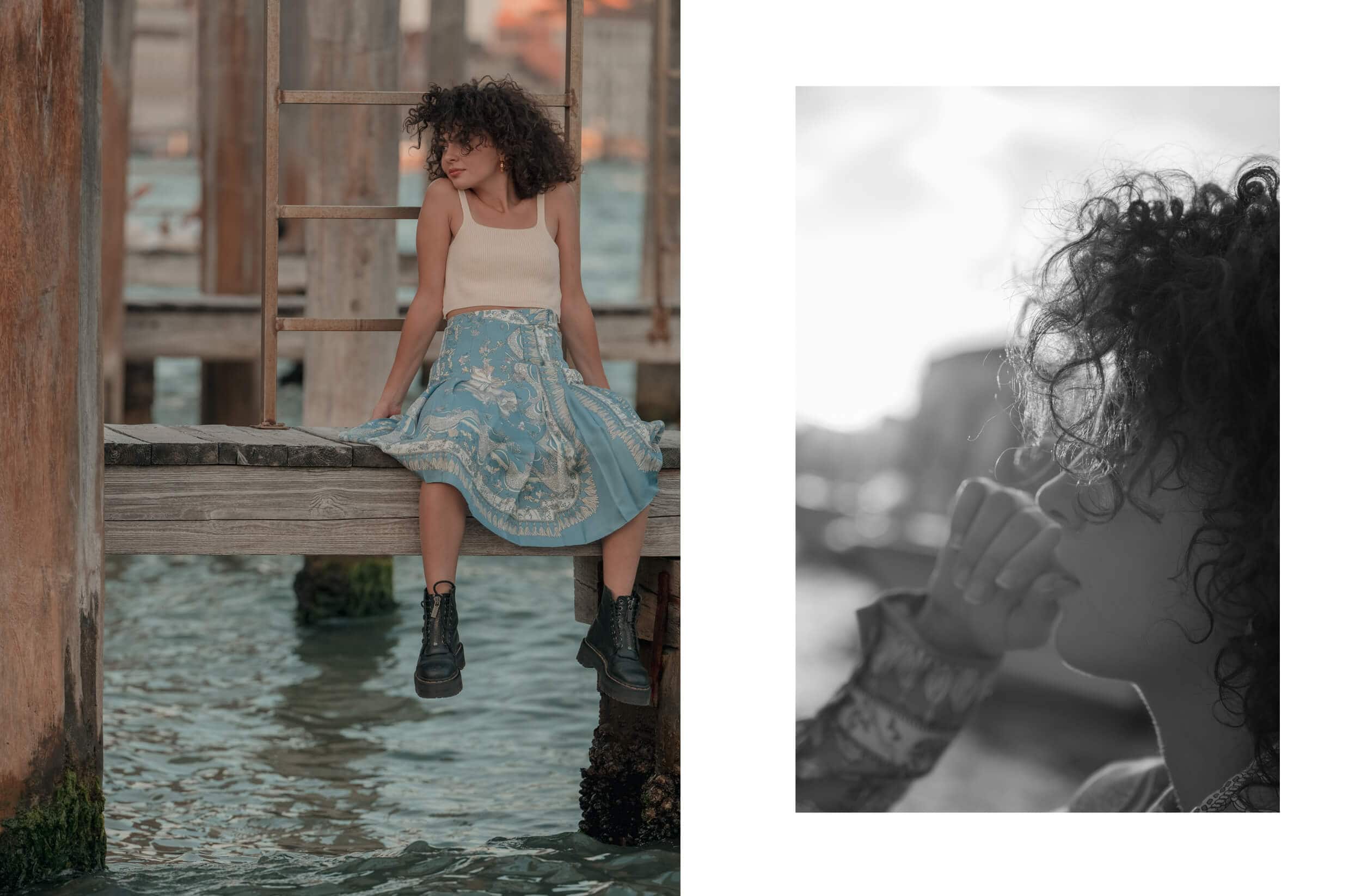With “The Catholic School” and “Dogworld,” Federica Torchetti lands on the big screen to narrate two socially and historically significant stories, in the name of the ultimate purpose of cinema, that of “conveying a message.”
We interviewed Federica to get to know about her experience on those sets full of responsibilities: to recreate and “relive” the Circeo massacre was a huge acting and moral challenge, as much as to imagine everyday life in a post-apocalyptic Taranto. However, Federica is a powerful woman, like the ones whose stories she dreams to tell, and she doesn’t give up in front of any fear, nor the need to transform. Federica embraces challenges and promises to learn how to face them with ever more self-awareness.
What’s your first cinema memory?
My first cinema memory dates back to when I was a 7/8-year-old kid, and on Sundays, during the endless lunches that are typical of the Southern Italian culture, at my grandma’s, we were used to watching TV, and Italian black and white cult movies were usually on (the movies starring Totò, Monica Vitti, Sophia Loren). I used to always watch them and believe that the past reality was just like that, “in black and white.”
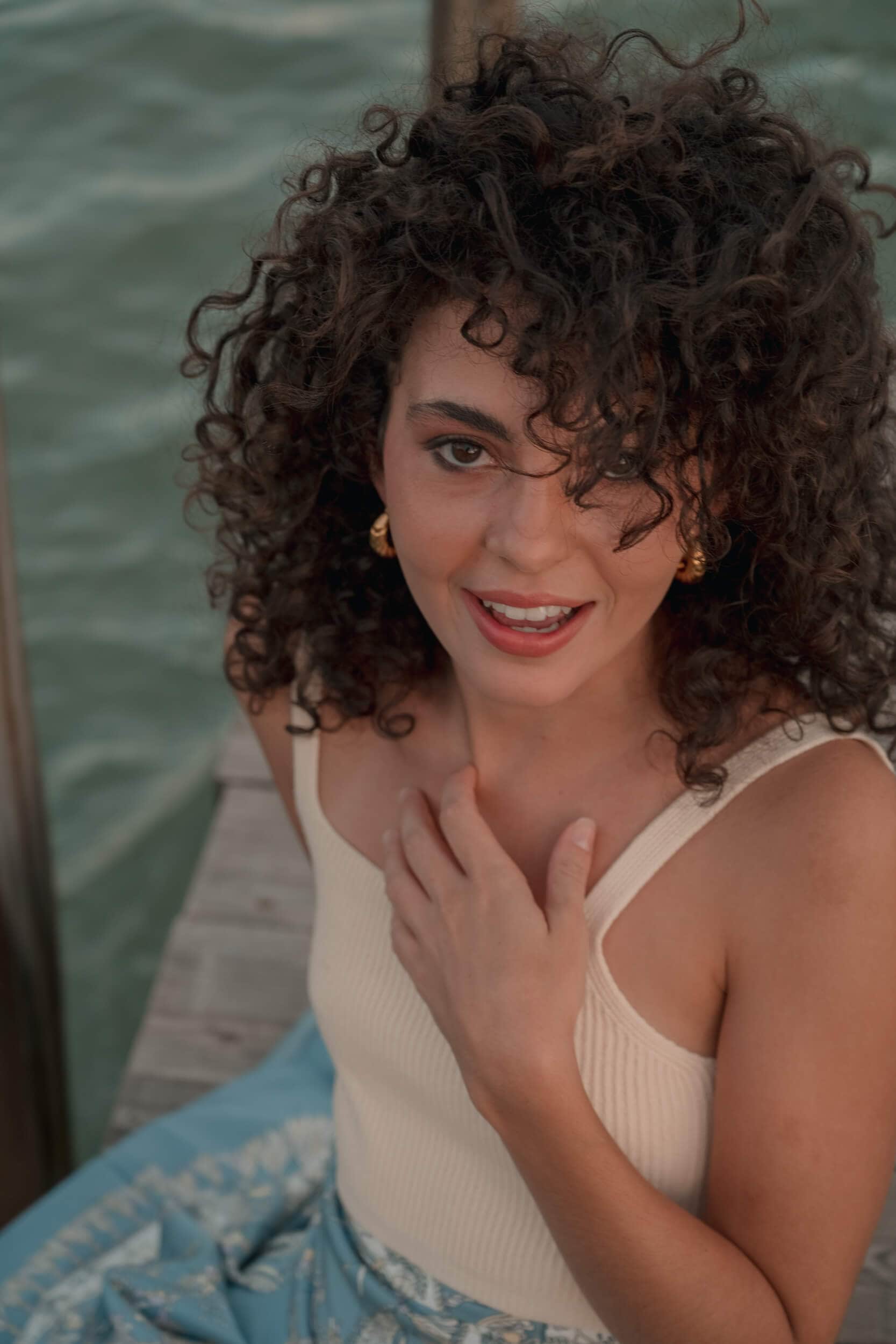
You’re starring in two completely different but equally important movies: “The Catholic School” by Stefano Mordini, and “Dogworld” by Alessandro Celli. How are you living such an exciting and busy moment in your career?
I’m feeling very proud of myself, the 5-year-old me would be very happy about the journey I’m going on. To be honest, I fully realized this only when I went to Venice as if only then I became aware that I, too, was part of such a prestigious film festival.
My next goal is to experience many more busy and exciting moments, and I will work with the same energy and willpower, but with more awareness than before.
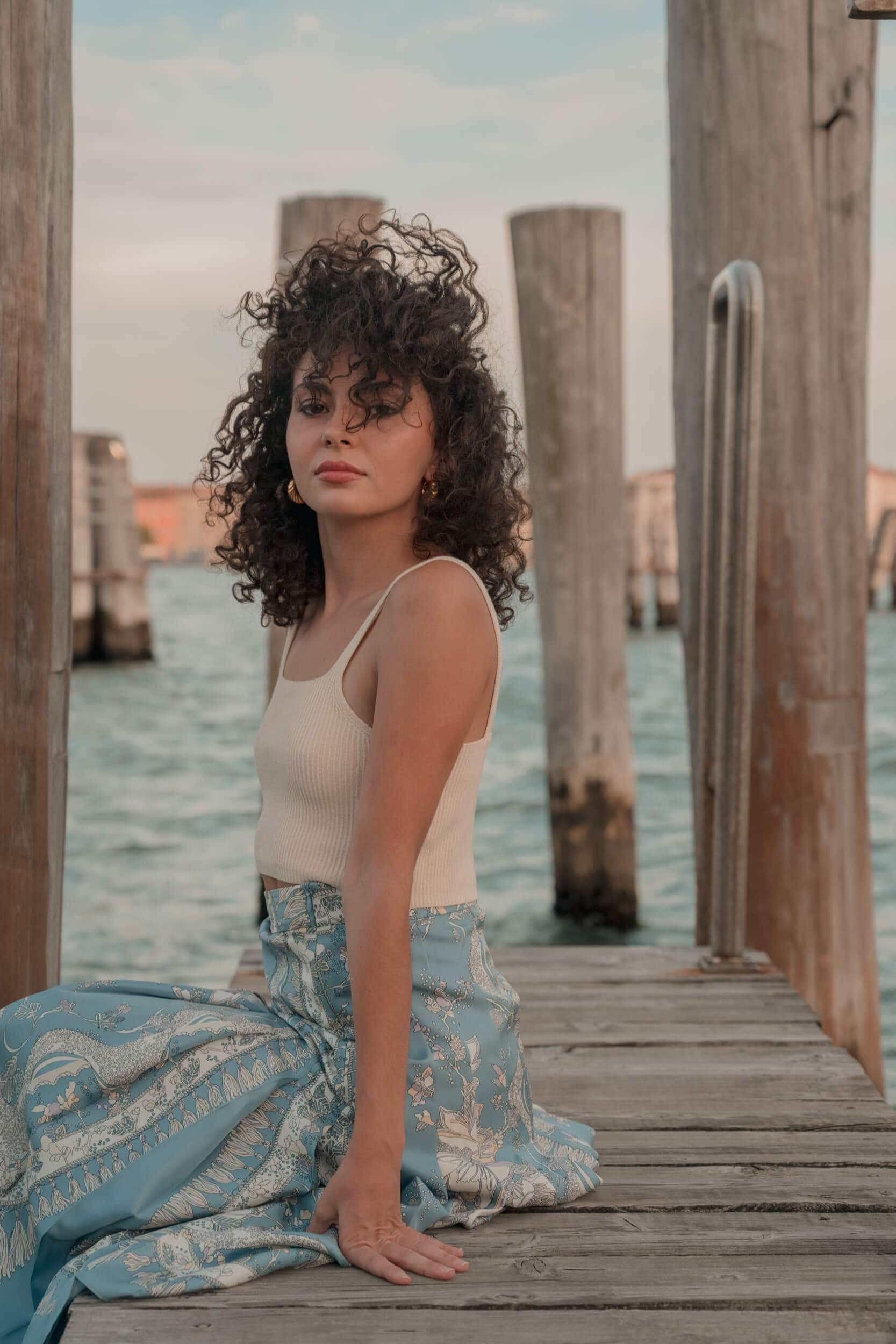
“…the 5-year-old me would be very happy about the journey I’m going on.”
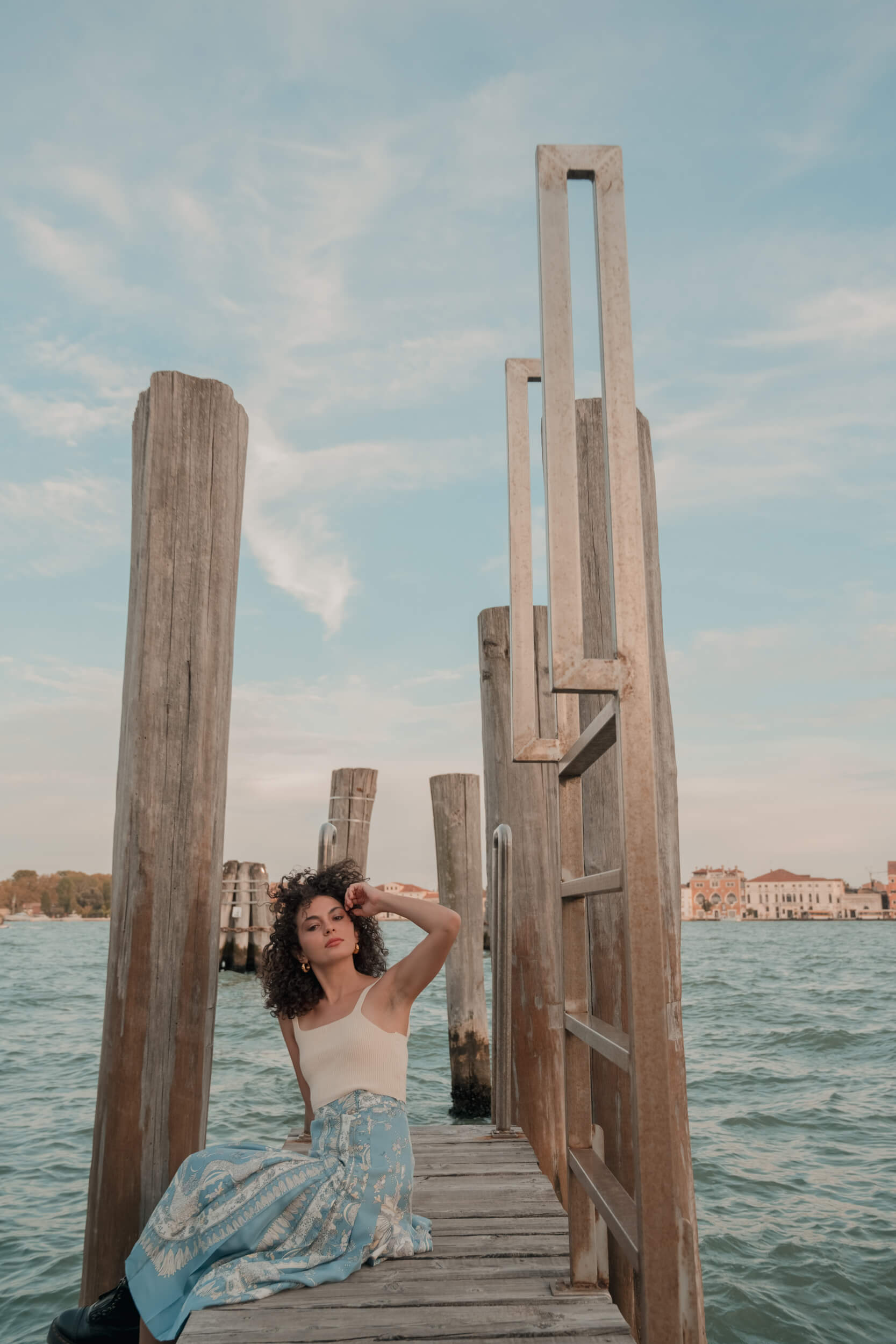
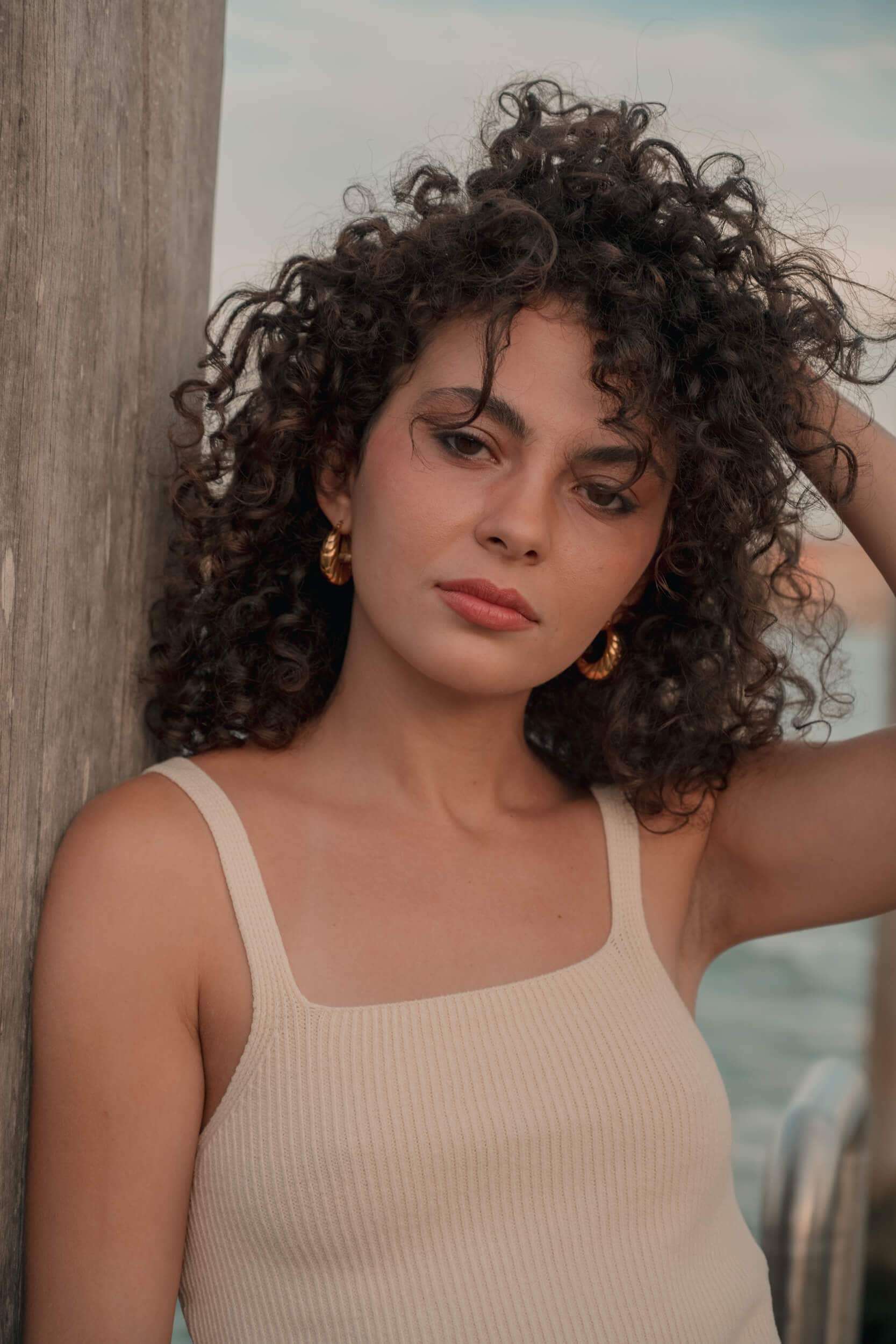
“The Catholic School:” the cinema adaptation of a terrifying news story, the Circeo massacre. What was your first reaction when you read the script and processed the role you were going to play? And what was the first question you asked the director and yourself about it?
I remember very well my audition for “The Catholic School,” when, at the end of my test shoot, Stefano [Mordini] told me, “Federica, do you know what this story is about? Would you be willing to do this?”. Yes, I knew from the very beginning what we were going to tell and, honestly, I never had doubts. I wanted to do that with the awareness that it would have been not only a huge acting challenge but also a moral duty for me. I’m speaking as a woman. When I read the script, I was fascinated by the work that Massimo Gaudioso and Luca Infascelli had done. The more I read, the more I wanted to tell that, to perform that, despite feeling a certain amount of fear within me. But that was the way it should be.
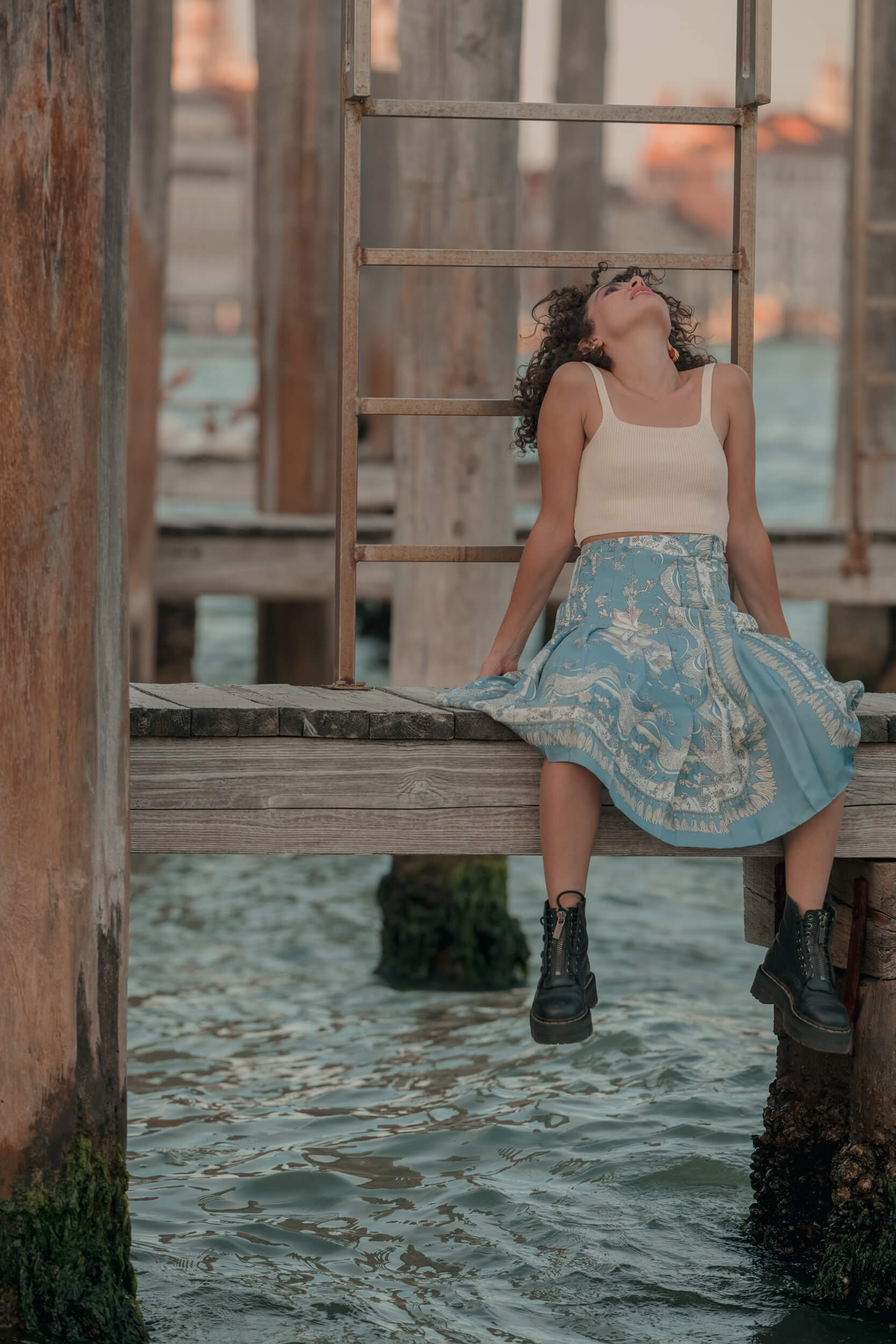
“…I knew from the very beginning what we were going to tell and, honestly, I never had doubts.”
What were the challenges of playing your character, Rosaria Lopez, the young victim of the murder, and how did you face and overcome them?
The biggest challenge was the sequences at the Circeo. The day before my very first take, I was in the hotel at Circeo, and I remember that the first night I couldn’t sleep. Actually, when we started filming, I didn’t really know what I was doing, I was not feeling very self-aware. I decided to totally let go and surrender myself to surprise, to get in touch with that kind of pain and re-evoke it (even though I could only distantly imagine it). Stefano was very supportive in this, always close to us, he let us free to express ourselves, with only a few conditions. However, I never felt at the mercy of fate. I felt protected and safe, with great silence and very much respect on set. I tried to work emotionally and physically through my body.
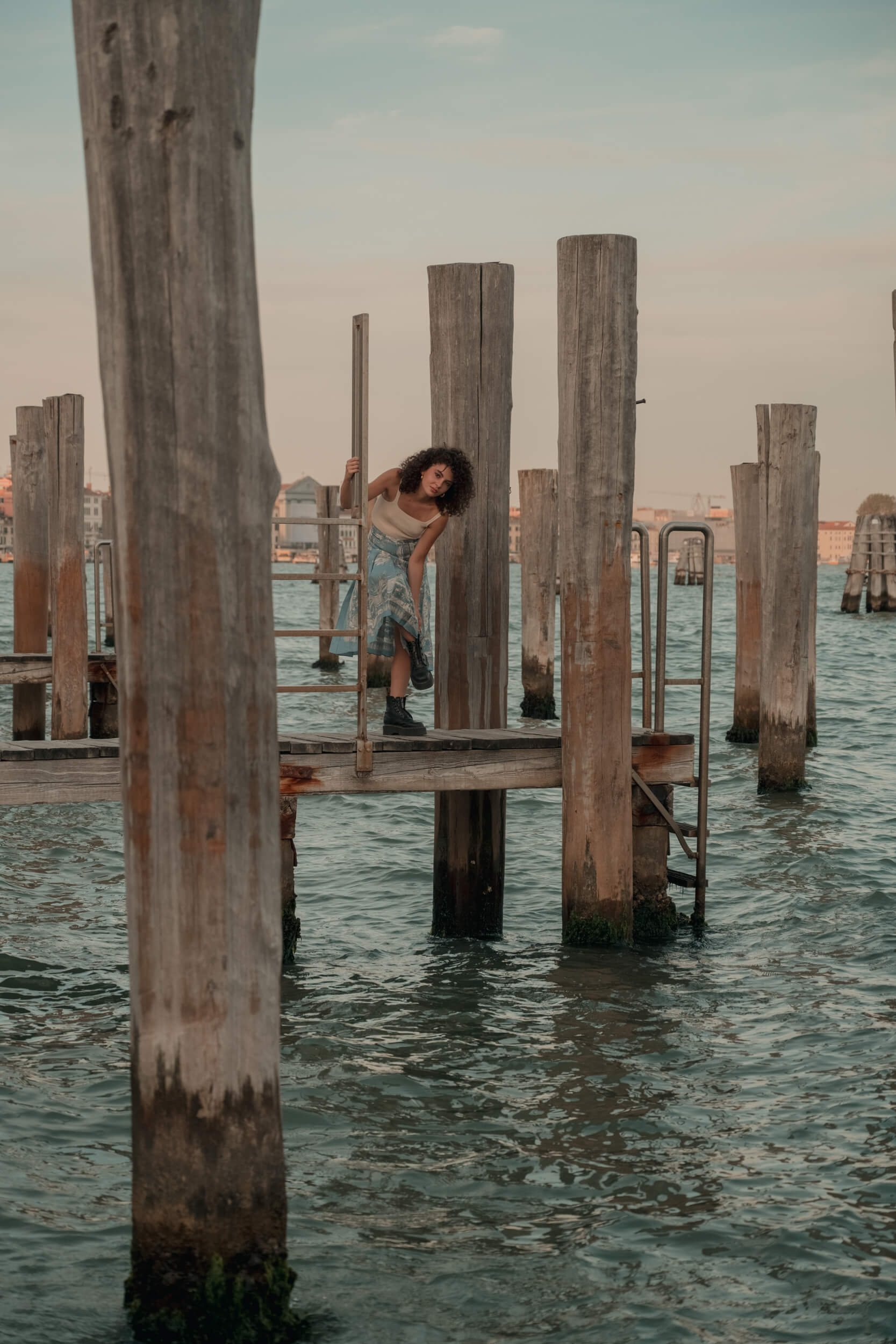
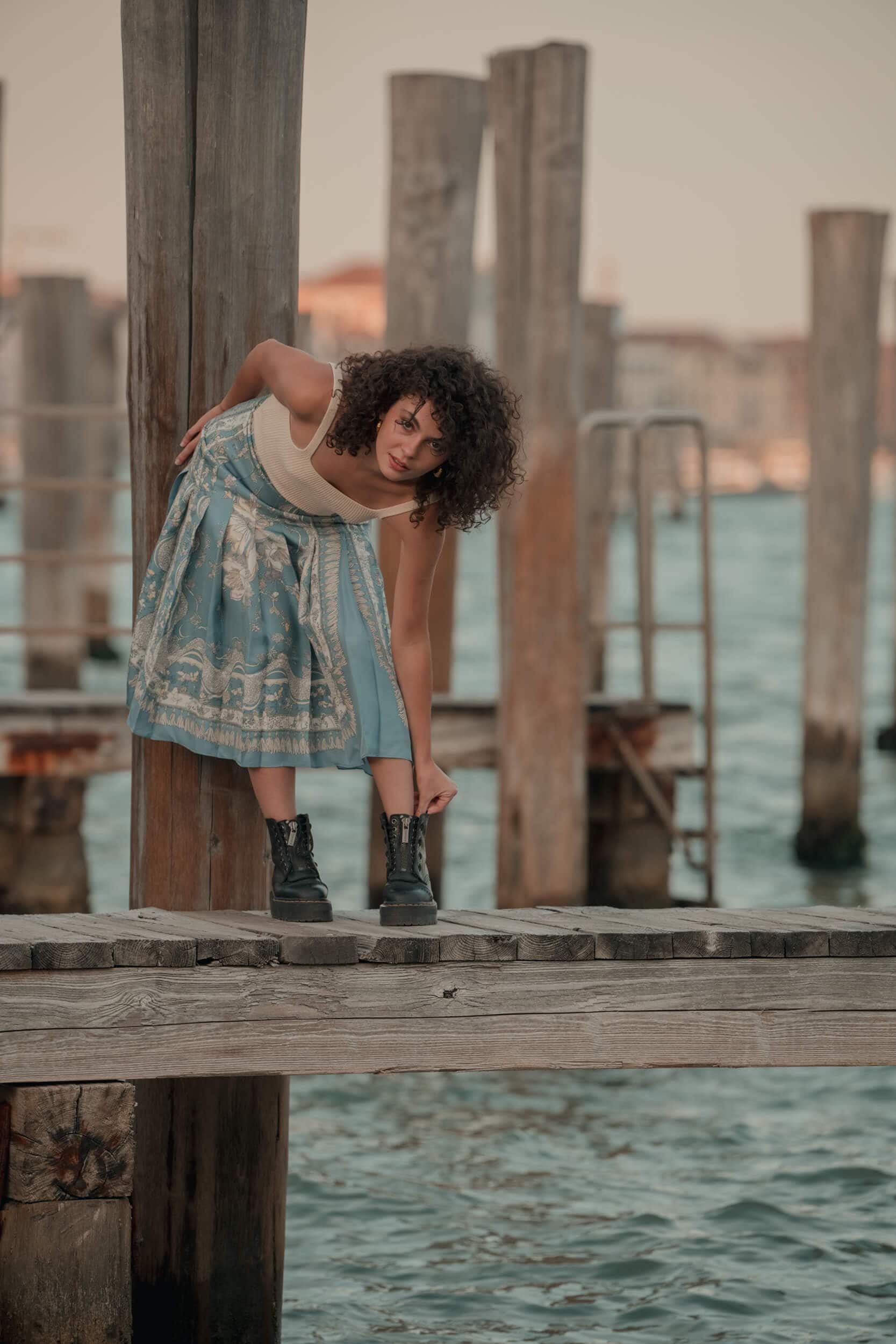
“I decided to totally let go and surrender myself to surprise…”
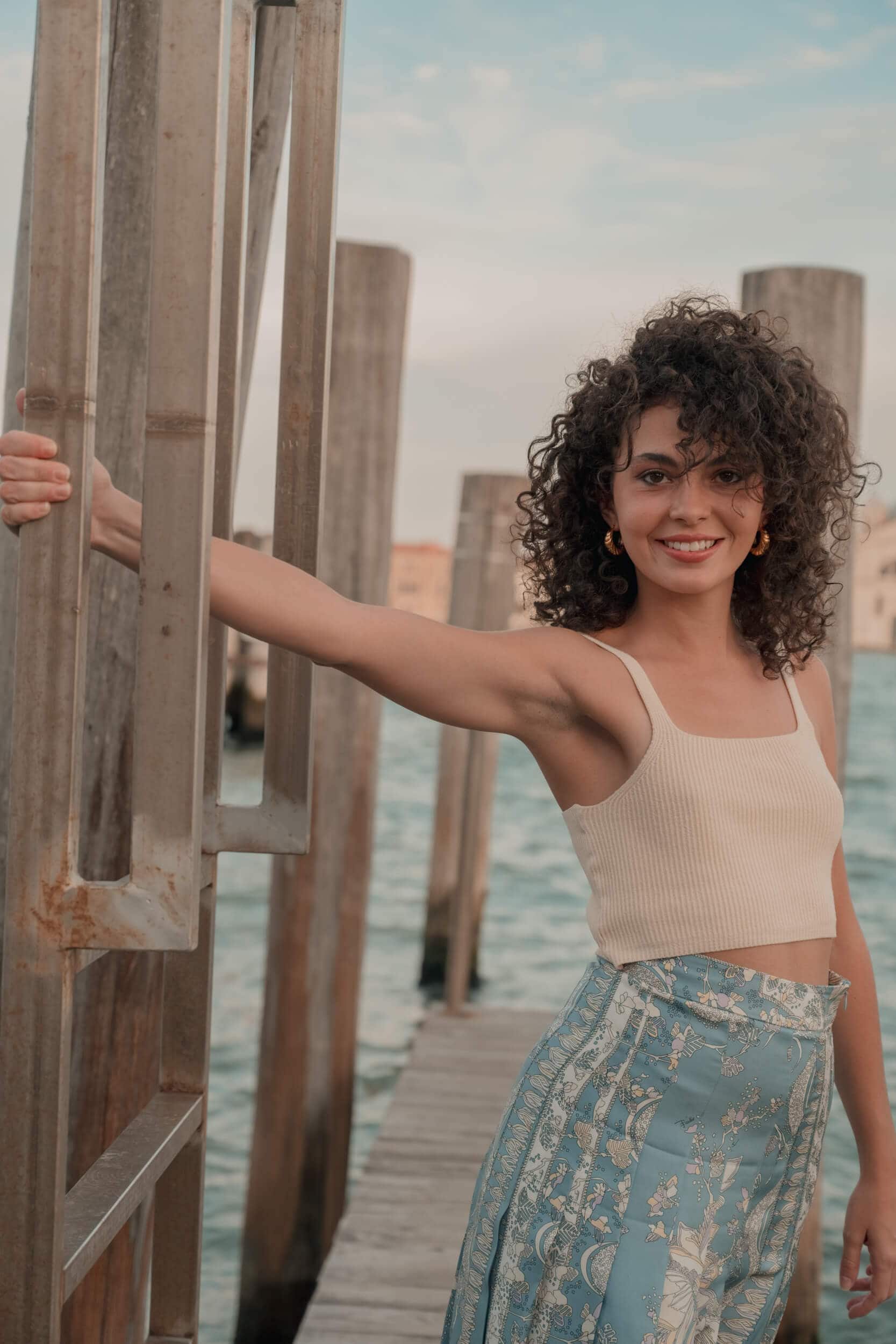
How would you describe “The Catholic School” in one word?
REEDUCATION.
What was your experience on the set of “Dogworld” like, instead, in competition in Venice’s International Film Critics’ Week? Here you play the role of a “high-ranking” member of Taranto’s criminal gang, the protégée of the boss, and the only girl in that microcosmos of violence and perdition: how did you work on yourself, but also with the director and the rest of the cast, to build your character?
I started by working on my physique, went on a diet, and started working out. The idea was that of trying and looking as much emaciated as possible, to render the image of a group who didn’t live a comfortable life, who didn’t have an easy life. I had a lot of fun on set, there was a nice atmosphere and I connected a lot with the only two adults with whom my character had a relationship, Alessandro Borghi and Josafat Vagni, and with the two young protagonists, Dennis Protopapa and Giuliano Soprano. Much came on its own, Alessandro Celli relied on me a lot and I relied on him, and he gave me a lot of freedom. I’m thankful for this because I had a chance to experiment. To be honest, when I looked at myself in the mirror, I didn’t see myself, I was totally different, with those freckles and that costume, and this helped me to let go of my responsibilities and allow myself to “play” more. I was the only woman, but I felt strong and comfortable in that world of men.
All the actors have been very generous, from Alessandro Borghi up to the kids, with their spontaneity and pureness.
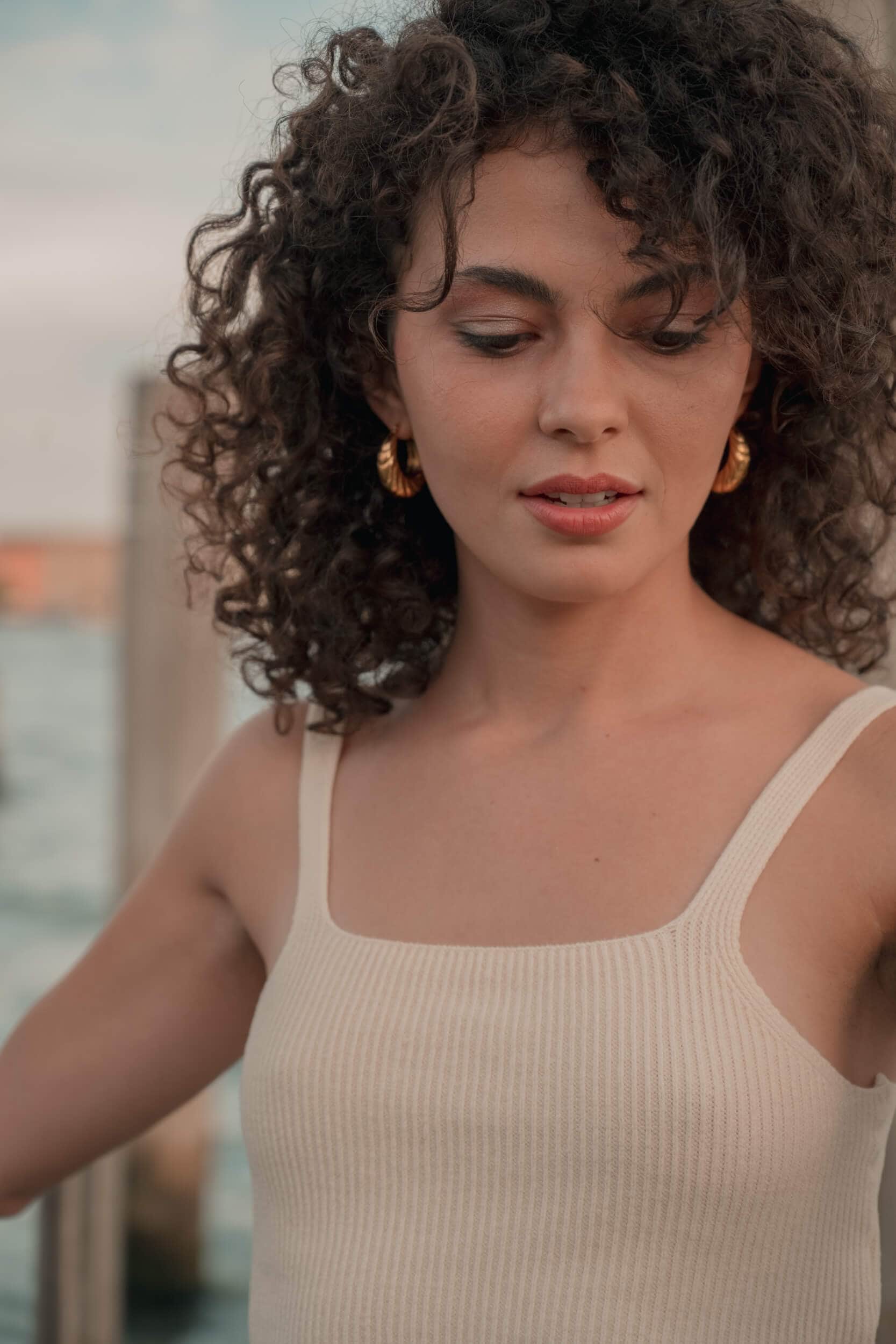
“To be honest, when I looked at myself in the mirror, I didn’t see myself, I was totally different, with those freckles and that costume, and this helped me to let go of my responsibilities and allow myself to “play” more.”
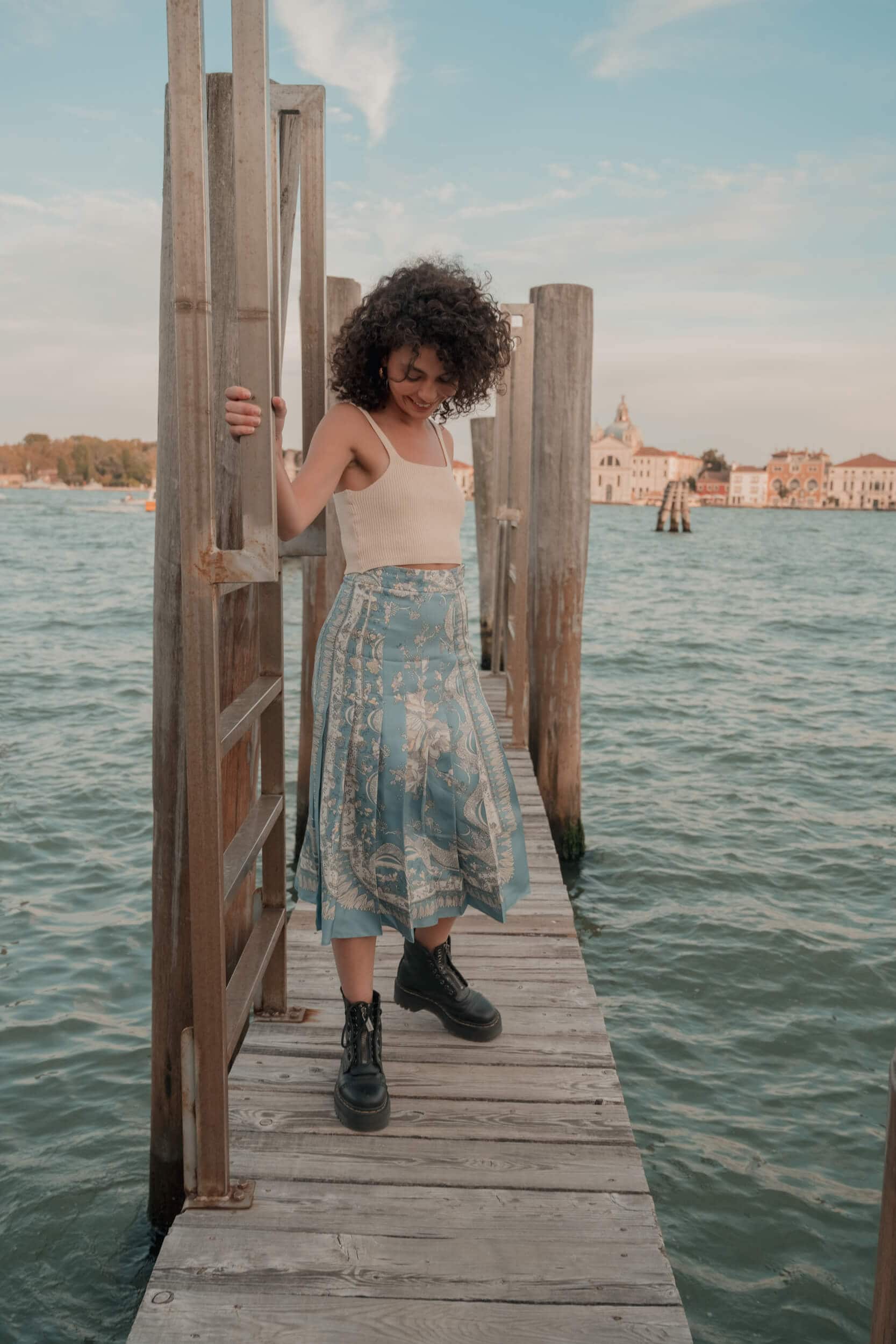
The story and the setting of the film are “sci-fi,” an almost apocalyptic future Taranto. What’s the message that the movie wants to send, the lesson that you hope the audience learns by watching it?
As Alessandro Celli said in an interview, the movie wants to act as a cry of hope and a tribute to a beautiful place, in this case, Taranto, but I want to underline that it could have been any part of Italy and of the world. Pollution is a current issue and I hope that, once the movie has ended, every audience member reflects upon what we are in danger of losing every day if we are not capable of preserving it.
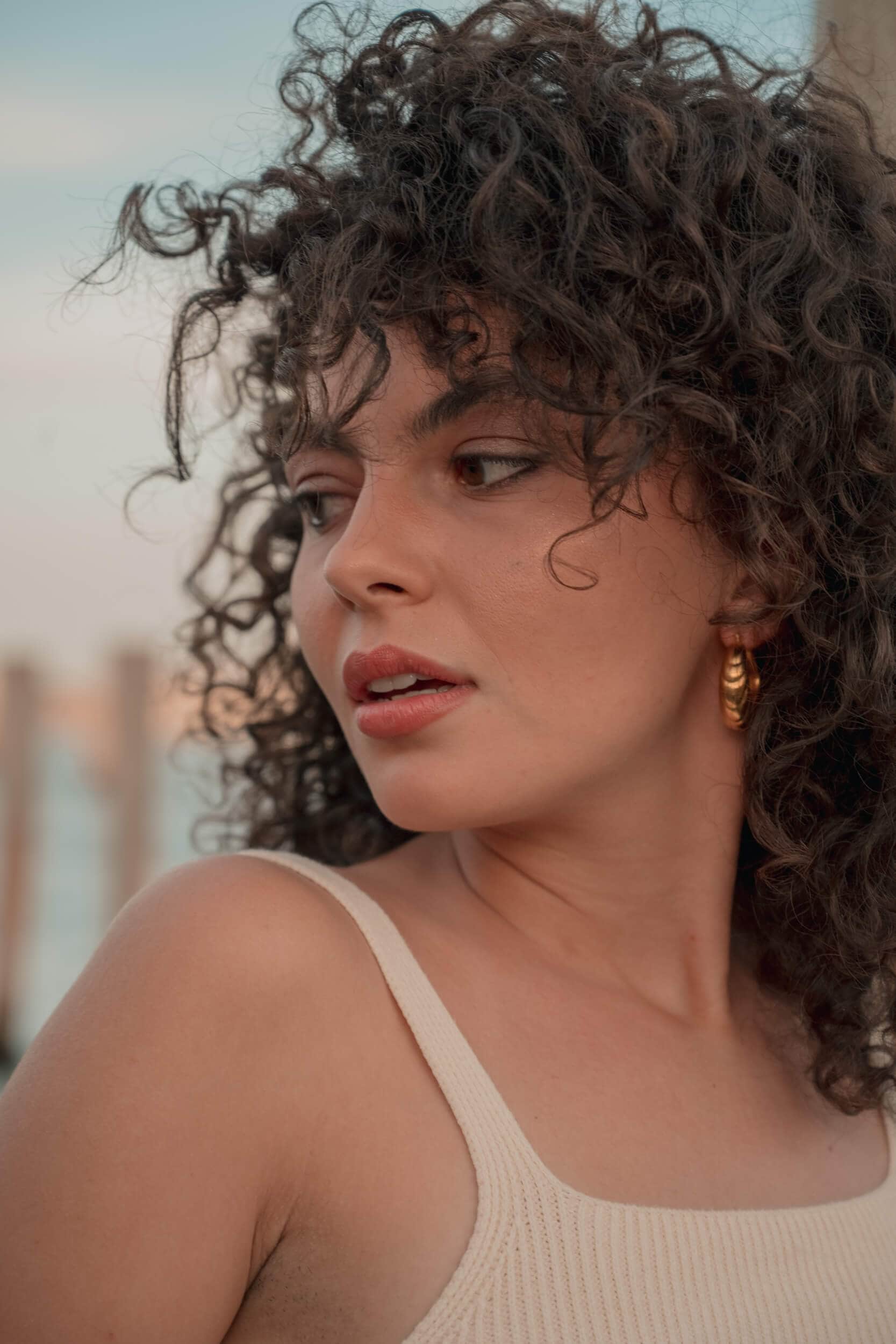
One word to describe “Dogworld”?
KIDS.
The latest film that made you discover something new about yourself?
“Portrait of a Lady on Fire” by Céline Sciamma; it made me understand how important it is in life to go for it and avoid the guilt of not having done what you wanted to do when you could have done it.
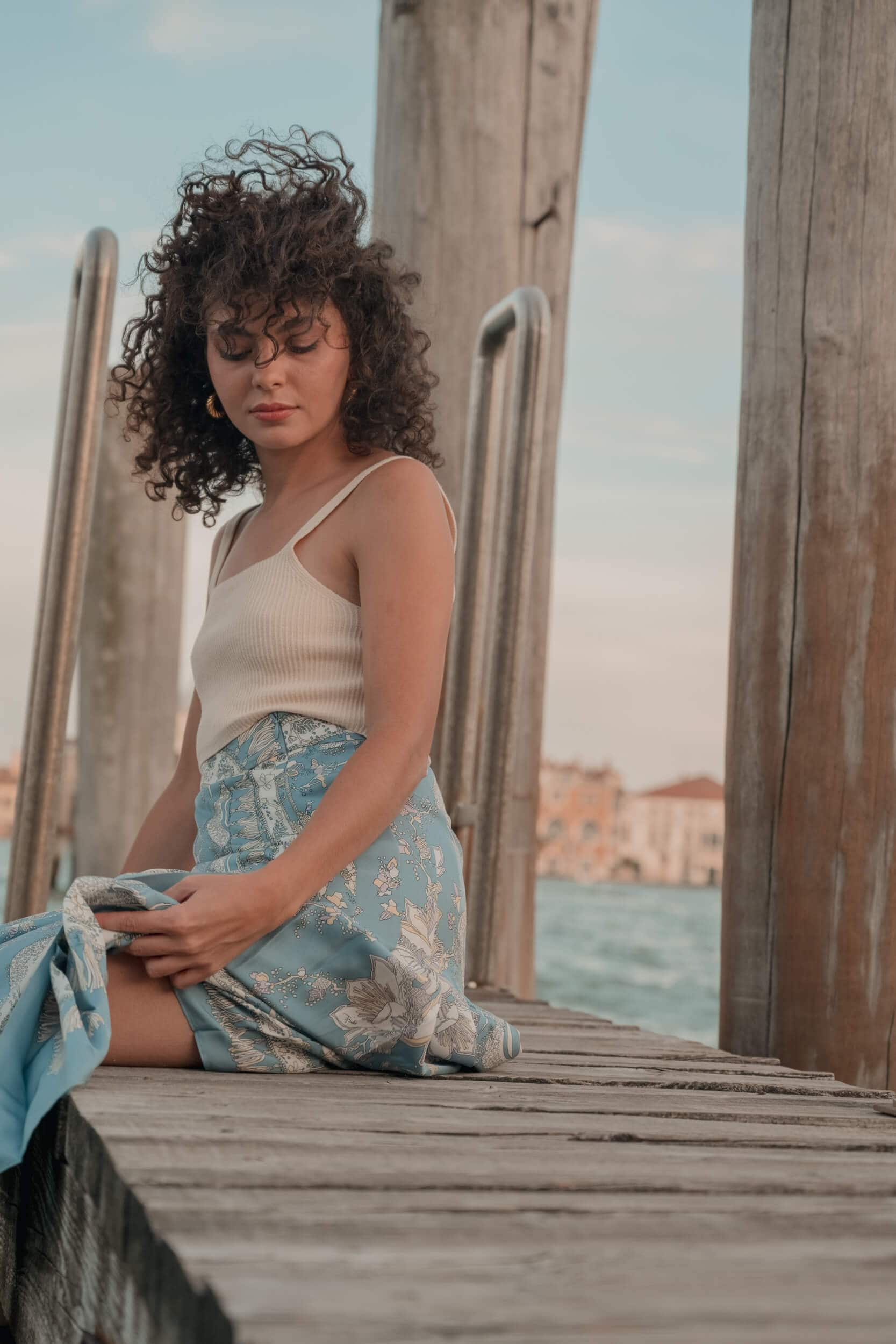
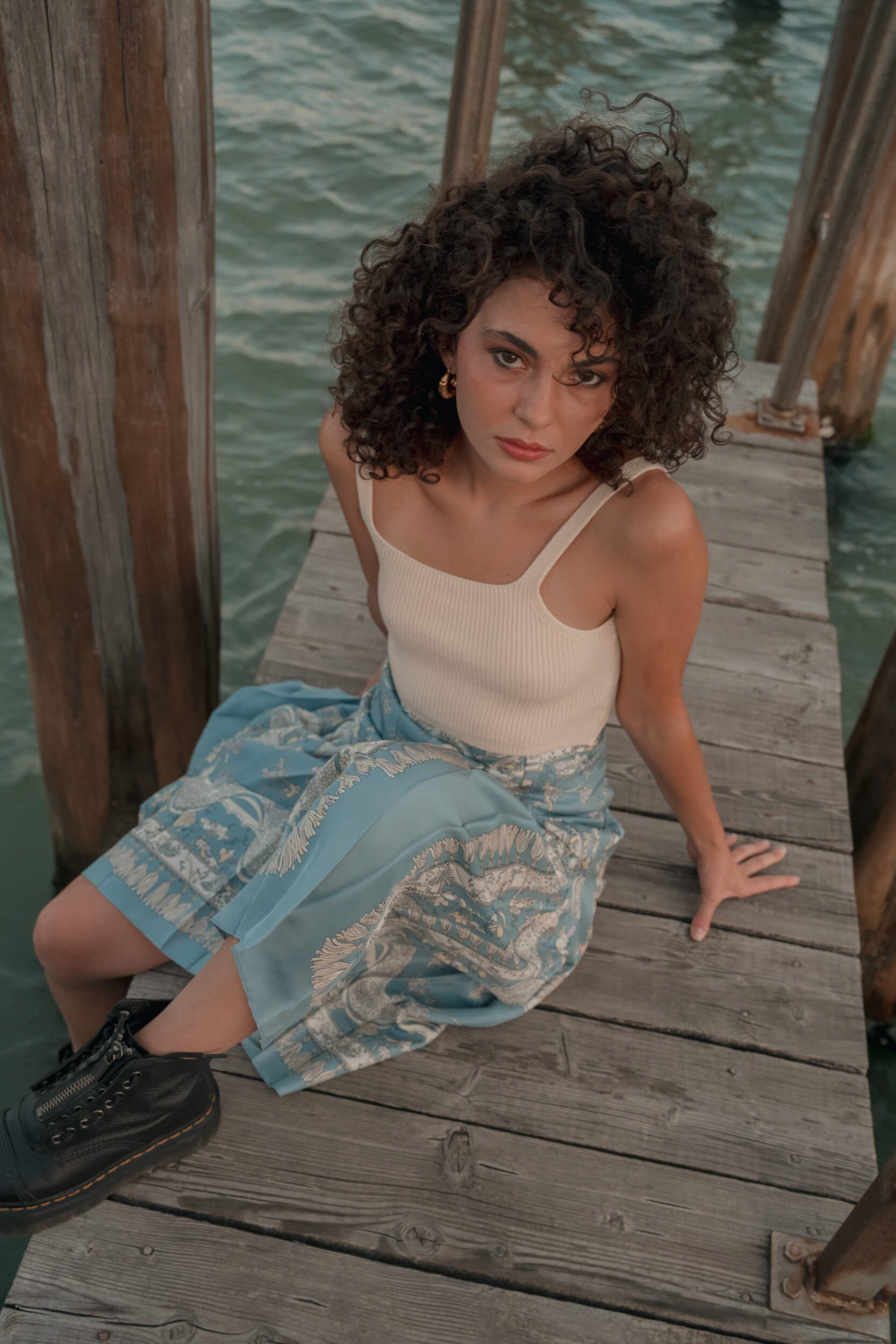
Your latest binge-watch?
“Domina,” a Sky TV series starring Kasia Smutniak about the story of Livia Drusilla, the most powerful woman in Ancient Rome.
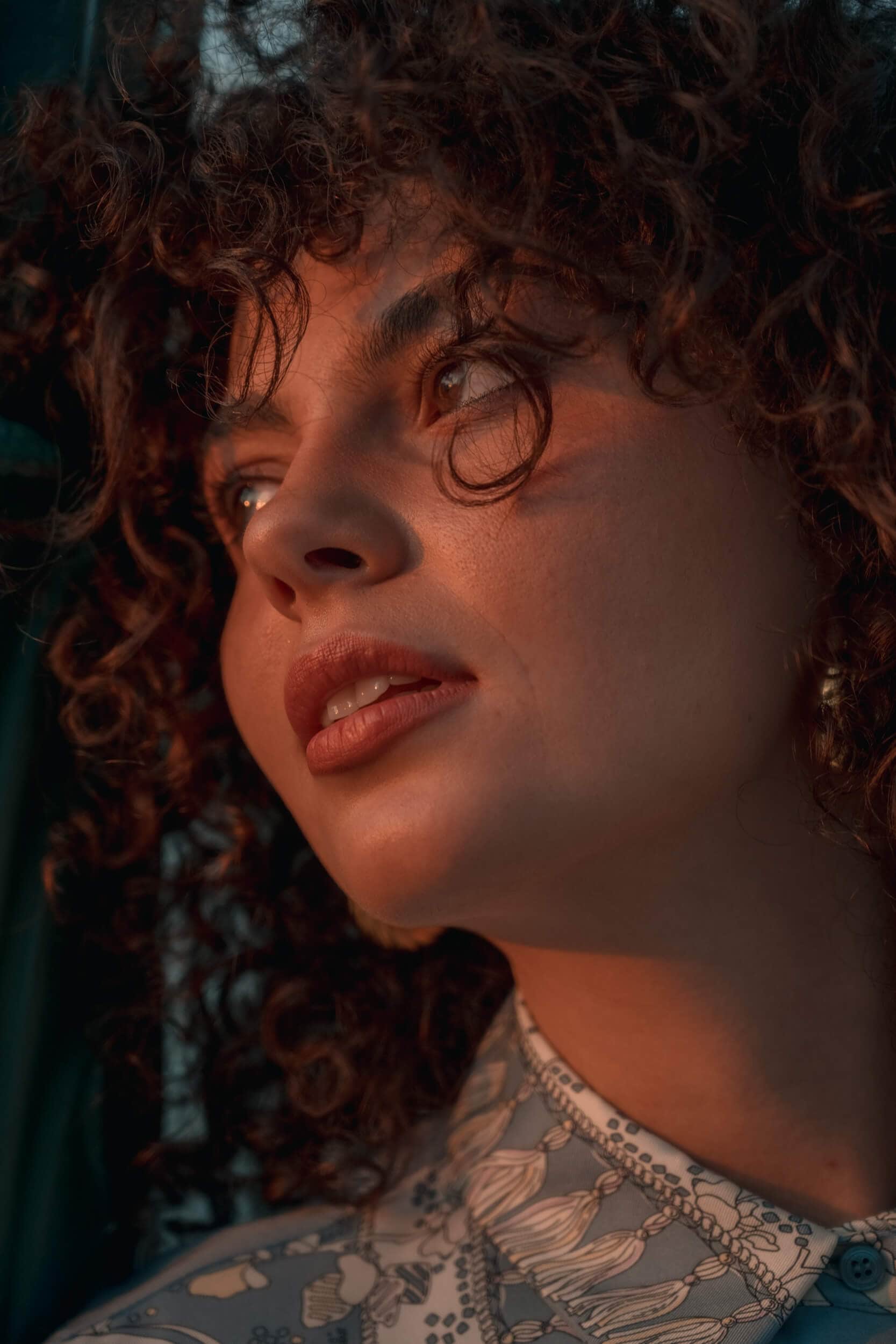
What stories do you dream to tell?
I dream to tell stories that have as protagonists the powerful women in history, both the history you write in the books and the one you live every day, women who carry heavy burdens on their shoulders. I’d like to tell stories that are close to our reality, in which the viewers can recognize themselves and the others. Cinema is the most powerful means we have to convey a message, we should use it.
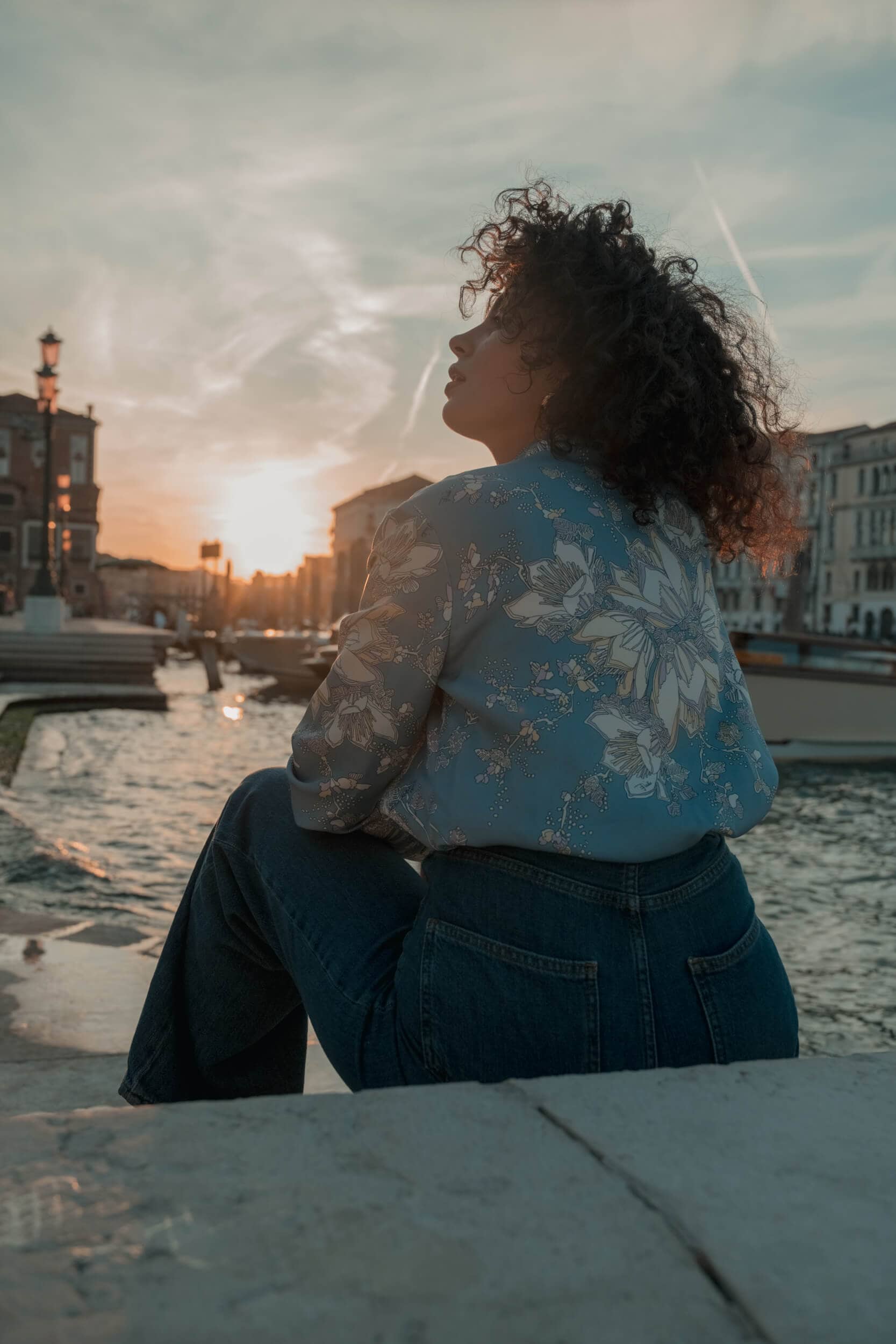
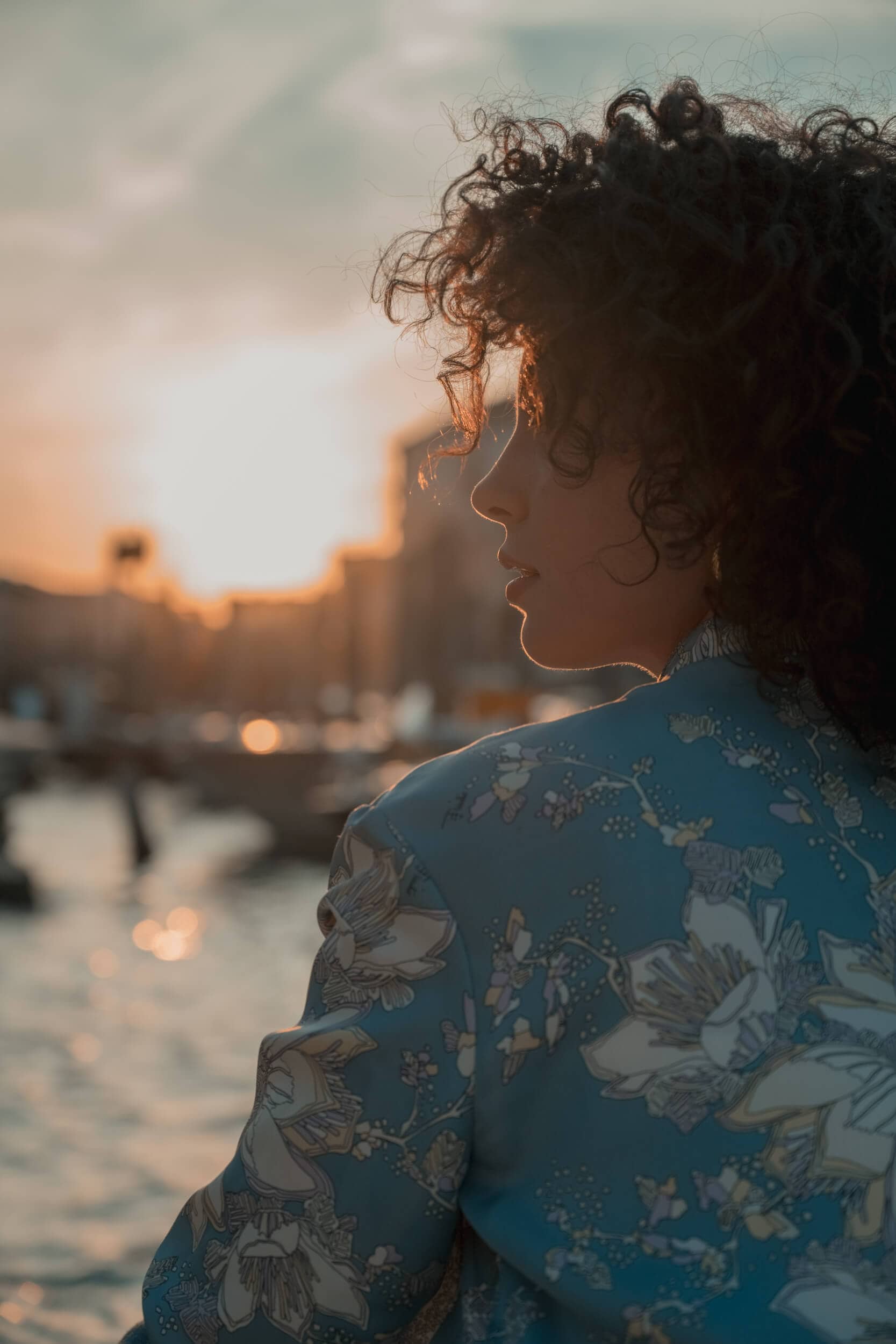
“Cinema is the most powerful means we have to convey a message, we should use it.”
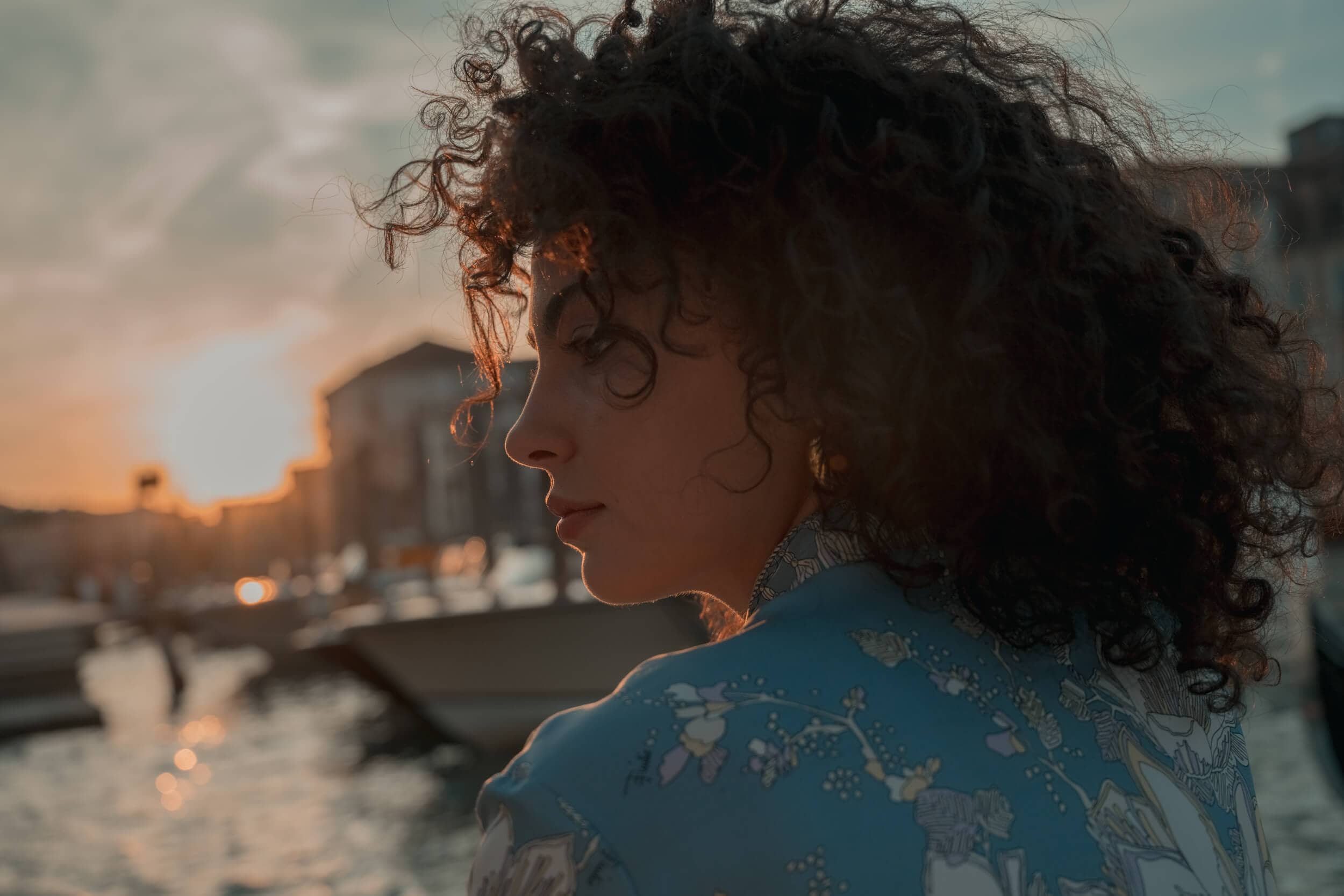
Your must-have on set?
It changes a lot depending on the set and the “mood” that I have to deal with. Actually, I still have to find it. Do I have time for that?
An epic fail on set?
I’ve had so many epic fails, not only on set but also in life. They’re so many that I can’t think of any right now.
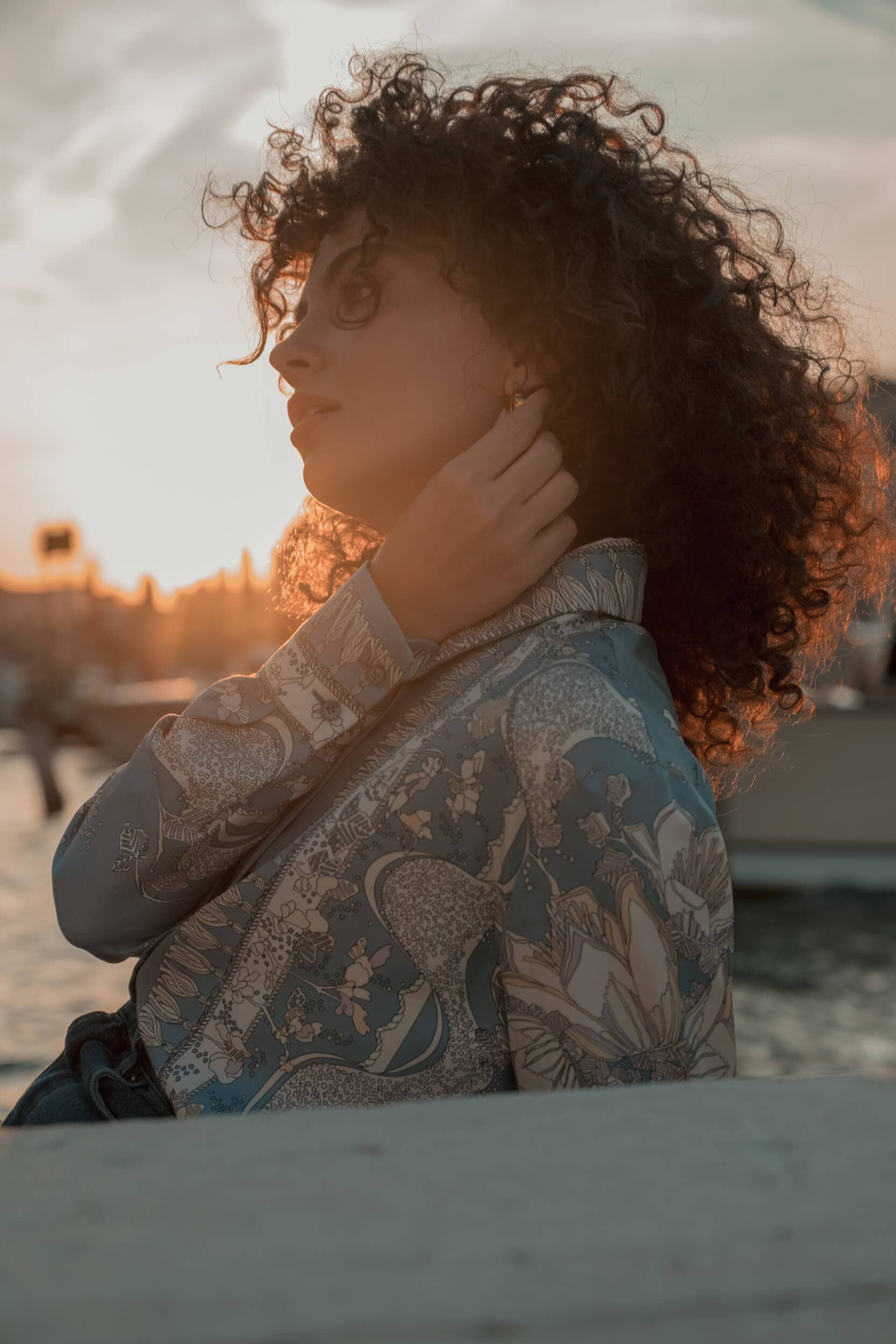
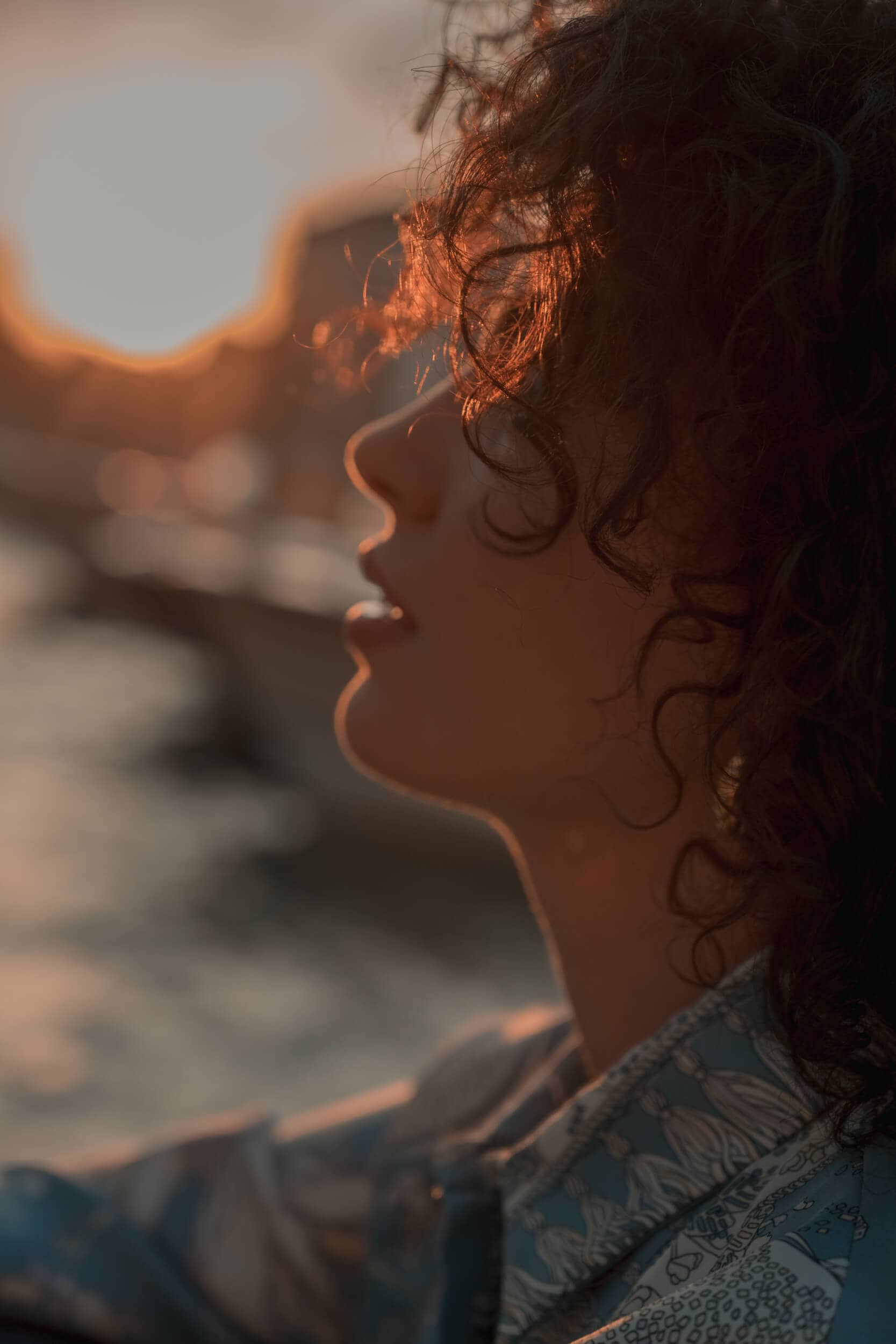
The most significant cinematographic encounter you’ve had?
I’ve never been very self-confident, I used to think that I couldn’t make it, that I wasn’t up to the task. This person looked me in the eye and said, “Do it, what do you have to lose?”. It’s true, when you’re 18 you have nothing to lose.
“Do it, what do you have to lose?”
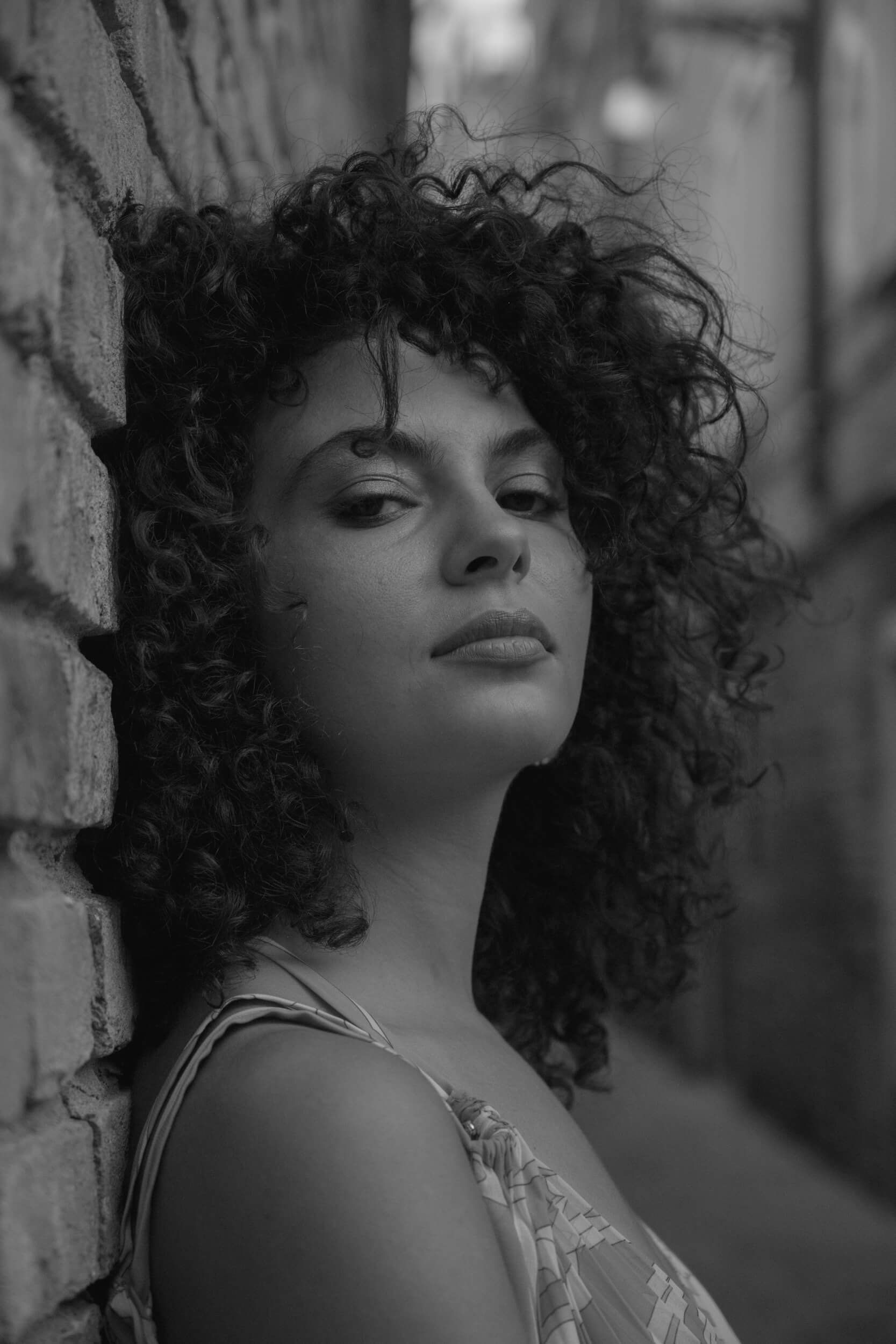
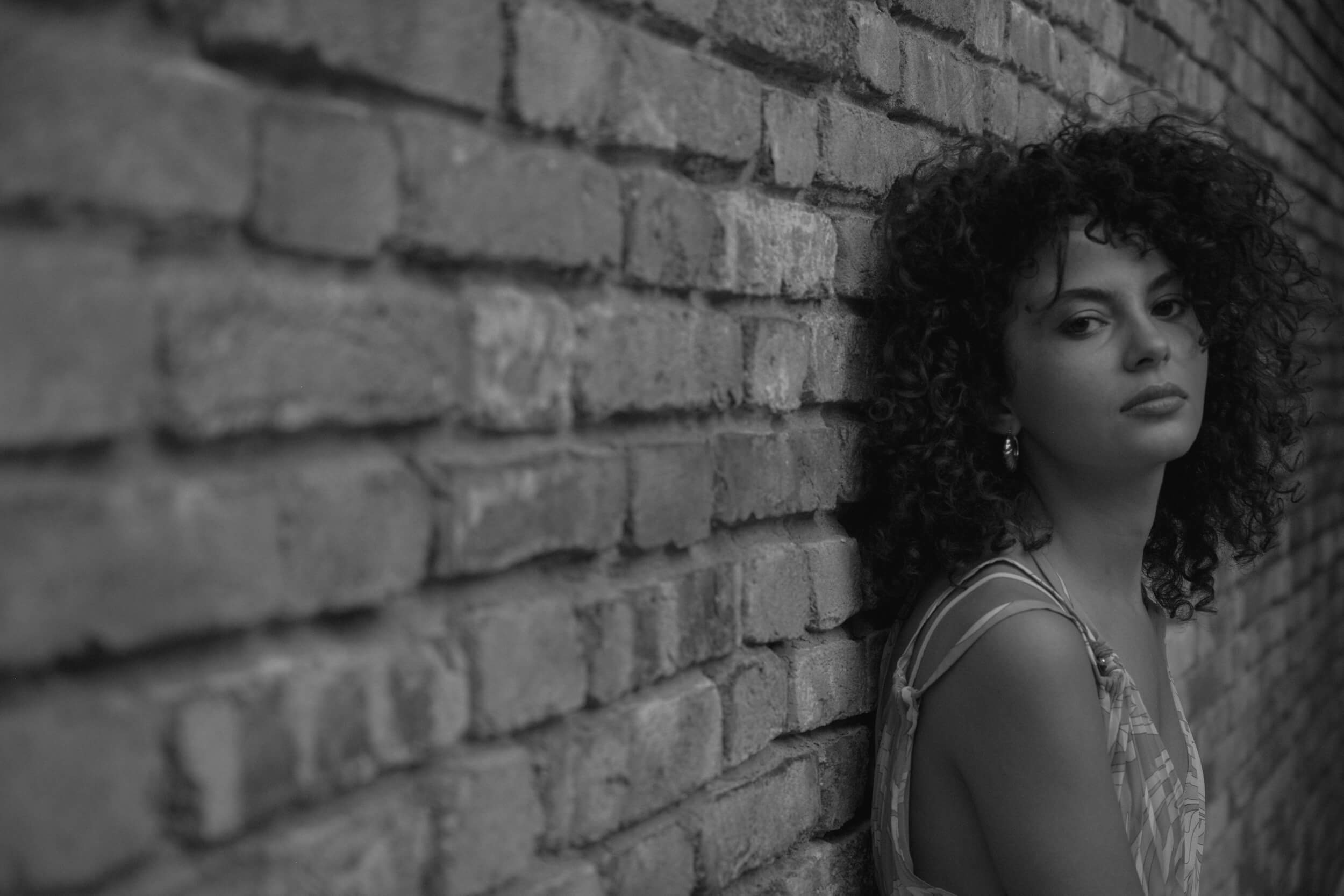
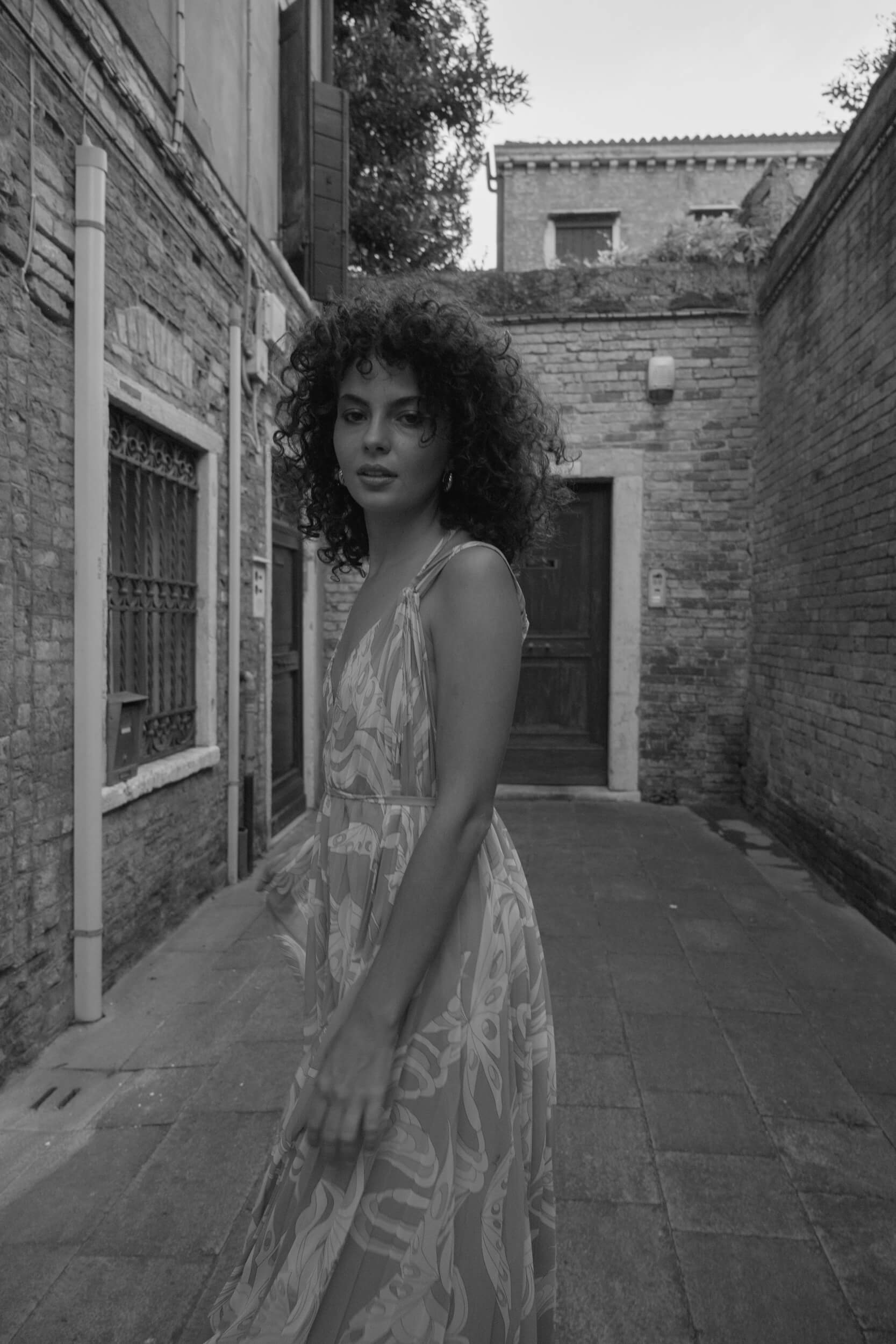
What’s the bravest thing you’ve ever done?
It might sound obvious, but it’s not. Moving away from my hometown at the age of 19, away from my certainties, my family, my mom’s good food, the smell of the sea, my dog, and the amusement I saw in my 20-year-old peers, and leaping into the void in a huge city, alone, searching for a future.
What are you afraid of, instead?
I’m afraid of the passing of time.
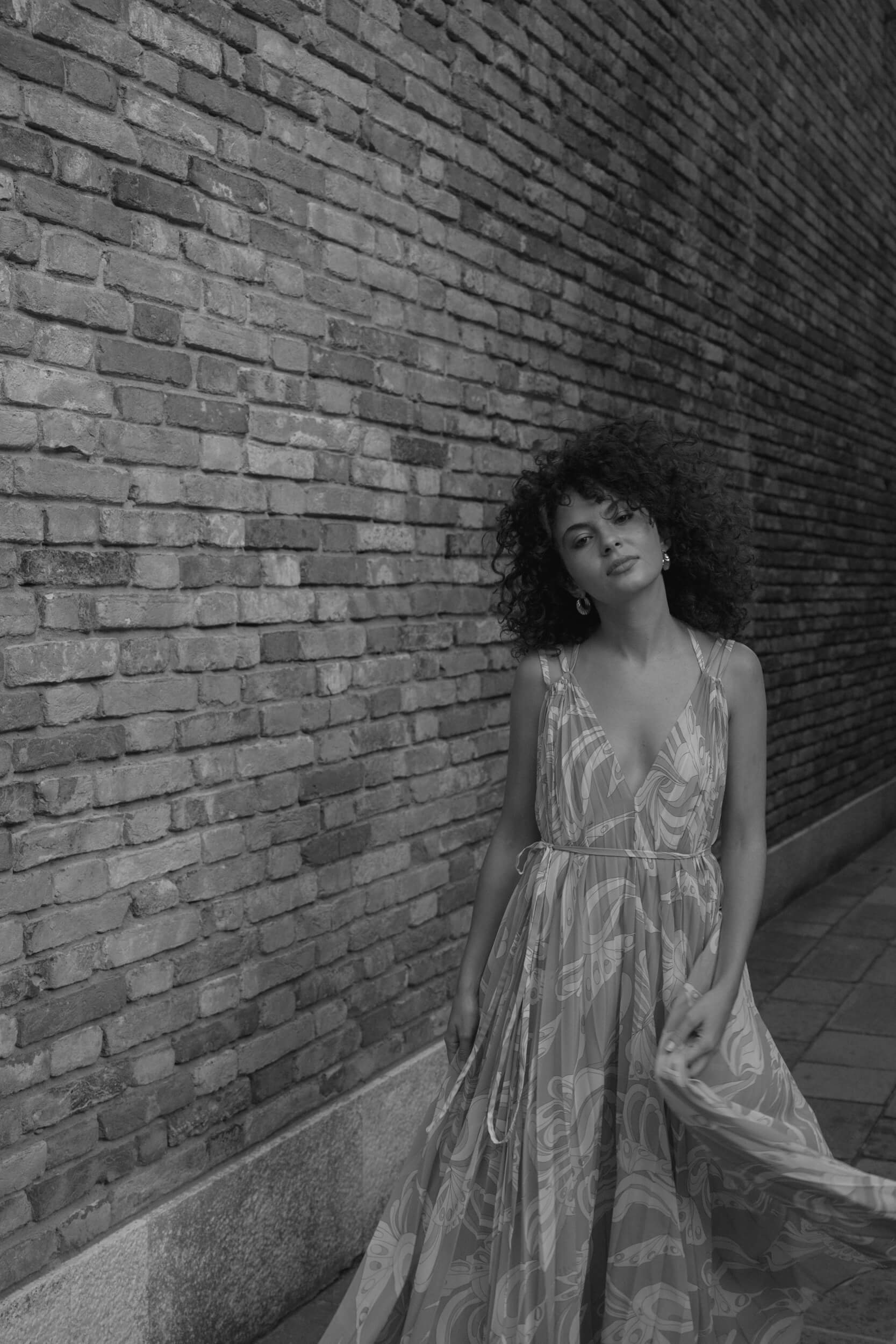
What’s your happy place?
My happy place is anywhere in the world with the few people I trust and with whom I can be my true self.
What does it mean to you to feel comfortable in your own skin?
It means knowing all the sides of myself, my strengths and my weaknesses, and learning to embrace them. Accepting that I can make mistakes and trying not to judge myself. And if this comes from the mouth of an actress, it’s a tough challenge!
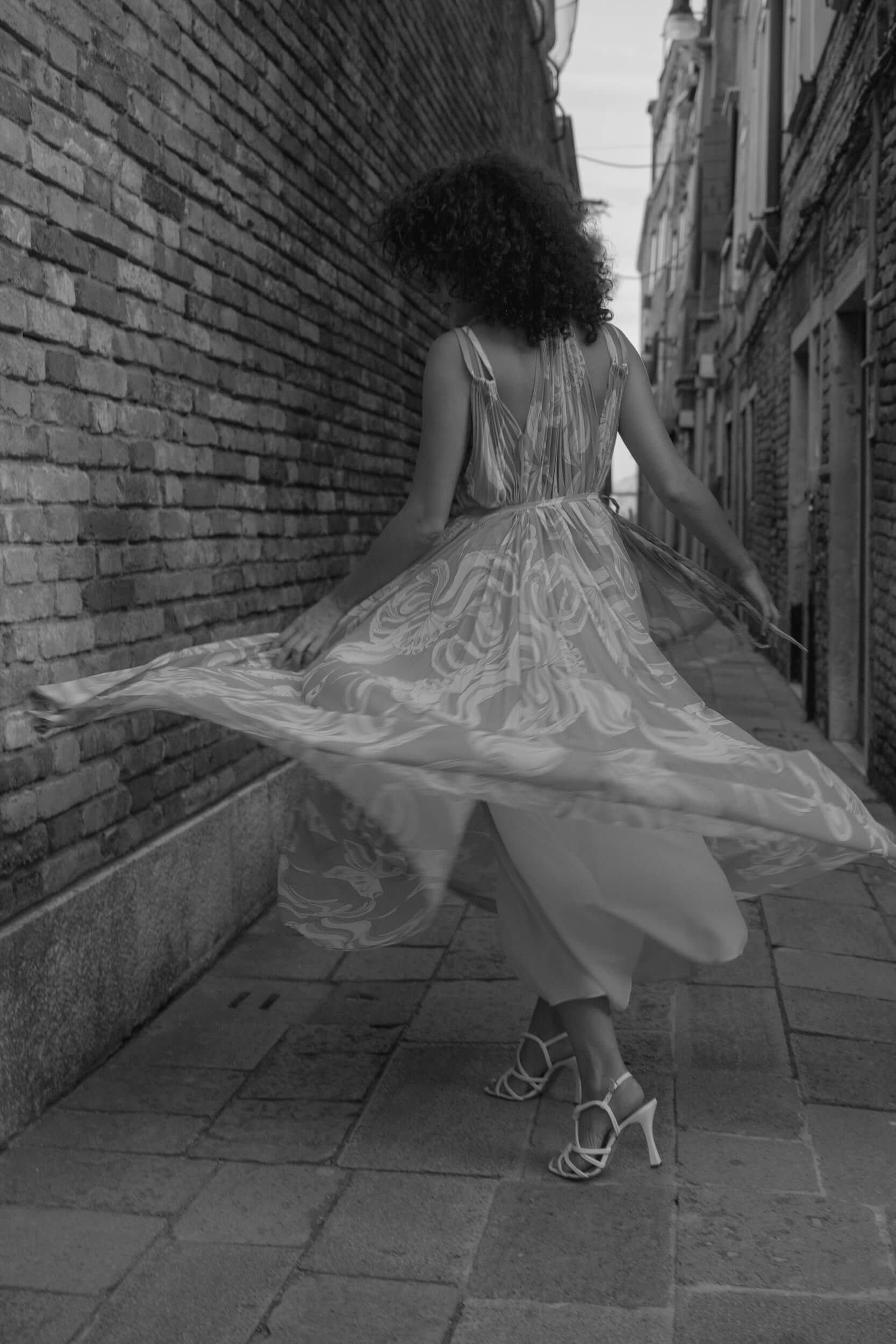
Photos by Johnny Carrano.

